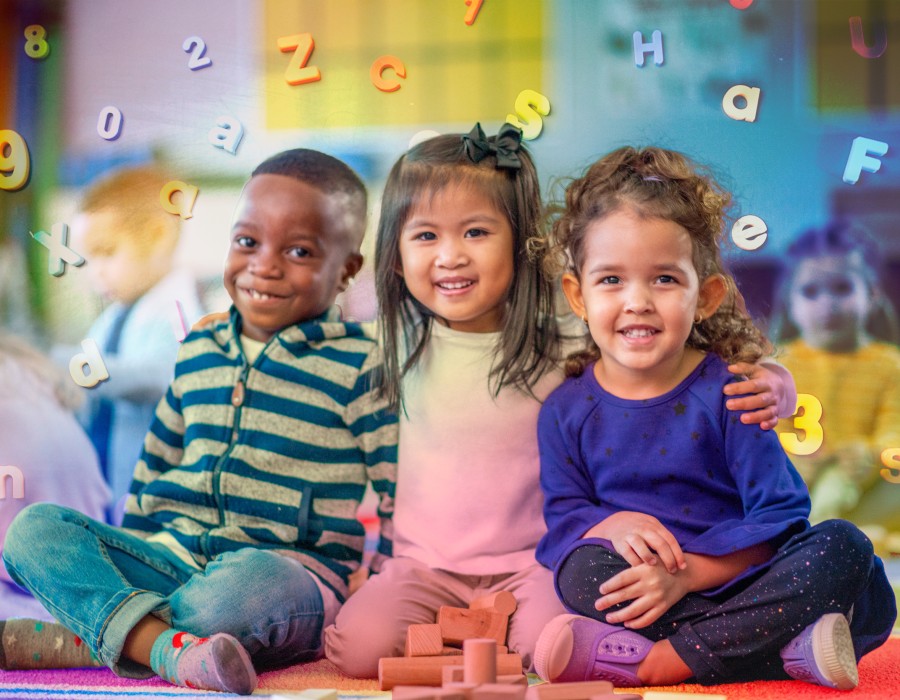In the bustling city of Pune, play schools have evolved beyond their traditional role of providing early childhood care. These institutions now play a pivotal role in cultivating essential social skills in young children. Recognizing the significance of social competence in a child's holistic development, play schools in Pune have adopted innovative approaches to create environments that foster positive social interactions, effective communication, and healthy relationships. This article explores how play schools in Pune contribute to the development of crucial social skills in their young learners.
Building Strong Foundations
Play schools in Pune understand that early childhood is a critical phase for social skill development. These formative years lay the groundwork for a child's ability to interact with peers, form friendships, and navigate social situations throughout their lives. By focusing on building strong foundations in social skills, play schools contribute to the overall well-being and future success of their students.
Effective Communication: Play schools facilitate activities that encourage children to express themselves verbally, share ideas, and actively listen to others. Through storytelling, group discussions, and collaborative projects, children develop essential communication skills that enable them to convey their thoughts and feelings effectively.
Empathy and Understanding: Play schools emphasize the importance of understanding and empathizing with others. Through role-playing, story-based learning, and guided discussions, children learn to recognize and appreciate different perspectives, fostering empathy and emotional intelligence.
Cooperation and Teamwork: Collaborative activities are a cornerstone of play school environments. From group play sessions to team projects, children learn the value of cooperation, teamwork, and the benefits of working harmoniously towards common goals.
Conflict Resolution: Play schools provide opportunities for children to encounter conflicts and disagreements in a safe and guided manner. Teachers help children navigate these situations, teaching them essential conflict resolution skills, such as active listening, compromising, and finding mutually acceptable solutions.
Self-Regulation: Developing social skills also involves managing one's own emotions and behaviors. Play schools incorporate mindfulness exercises and emotional regulation techniques to help children understand and control their feelings, contributing to more positive social interactions.
Interactive Learning Through Play
Play schools in Pune understand that social skill development is best achieved through hands-on, experiential learning. The interactive nature of play allows children to engage in real-life scenarios, enabling them to practice and refine their social skills in a supportive and encouraging environment.
Pretend Play: Pretend play scenarios, such as playing house or acting out different roles, provide children with opportunities to practice social interactions, negotiate roles, and communicate effectively.
Group Activities: Play schools organize various group activities that promote cooperation, turn-taking, and sharing. These experiences teach children the importance of respecting others' opinions and working together as a team.
Circle Time: Regular circle time sessions in play schools encourage children to sit together, share their thoughts, and listen to others. This fosters a sense of community and helps children develop active listening and respectful communication skills.
Peer Learning: Play schools encourage peer-to-peer learning, where older children mentor and guide younger ones. This interaction nurtures leadership skills, empathy, and a sense of responsibility.
Creating Inclusive Environments
Inclusivity is a key principle of social skill cultivation in play schools. These institutions create inclusive environments that celebrate diversity and provide children with opportunities to interact with peers from various backgrounds, fostering an understanding and appreciation of differences.
Cultural Celebrations: Play schools organize cultural events and celebrations that expose children to different traditions, languages, and customs. This helps children develop an open-minded and inclusive worldview.
Storytelling: Stories from diverse cultures are incorporated into the curriculum, enabling children to learn about and relate to different experiences. This encourages empathy and broadens their horizons.
Collaborative Projects: Play schools often engage children in collaborative projects that require them to work with peers of varying abilities and backgrounds. This promotes teamwork, cooperation, and a sense of unity.
Parent-Teacher Collaboration
Effective social skill development requires a collaborative effort between play schools and parents. Play schools in Pune actively involve parents in the process, recognizing the importance of consistent reinforcement of social skills at home.
Workshops and Seminars: Play schools organize workshops and seminars for parents to understand the significance of social skill development and learn strategies to reinforce these skills at home.
Home-School Activities: Collaborative projects and activities that involve both parents and children create opportunities for shared experiences and discussions about social interactions.
Conclusion
Play schools in Pune serve as catalysts for the development of crucial social skills in young children. By creating inclusive environments, promoting interactive and experiential learning, emphasizing effective communication, fostering empathy, and encouraging cooperation, these institutions contribute significantly to a child's ability to navigate social situations with confidence and grace. Through their holistic approach, play schools in Pune not only prepare children for academic success but also equip them with the interpersonal skills necessary to thrive in a diverse and interconnected world.






Comments